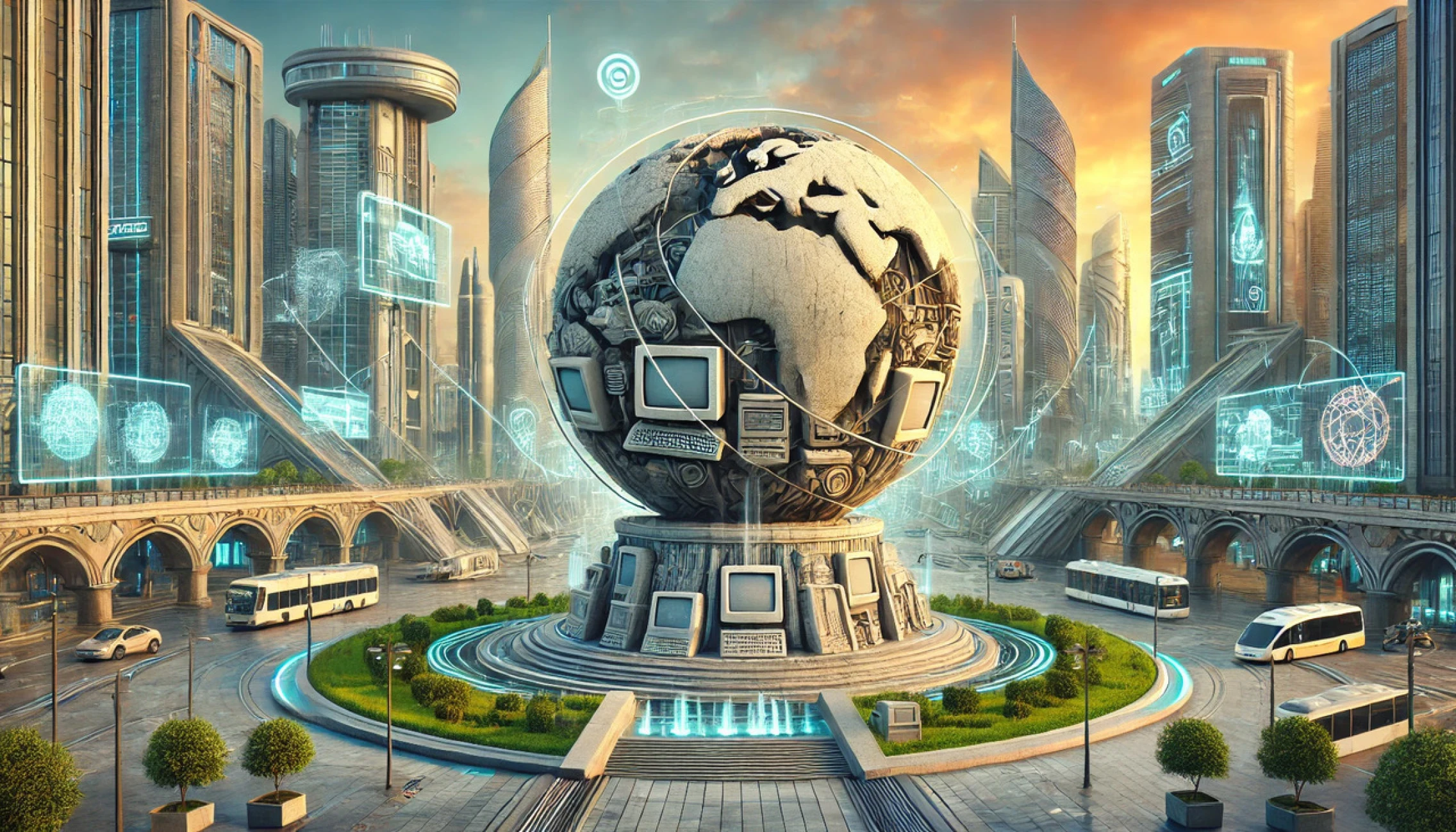From Dial-Up to 5G: The Internet's Evolution and What’s Next
The internet has come a long way since its humble beginnings. On International Internet Day, let’s take a look at how far we've come, where we are now, and what the future holds for this incredible technology.

The internet has come a long way since its humble beginnings. What once started as a small, experimental network connecting just a handful of computers has now transformed into a vast, complex system connecting billions of devices worldwide. On International Internet Day, let’s take a look at how far we've come, where we are now, and what the future holds for this incredible technology.
The Early Days: Dial-Up and Web 1.0
In the early 1990s, the internet began to creep into the public’s consciousness, albeit at a snail’s pace—literally. Back then, connecting to the internet meant hearing the unforgettable screech of a dial-up modem as you waited minutes for a single webpage to load. Downloading a file? Forget it—that could take hours! The internet of the '90s, often referred to as Web 1.0, was largely static, with websites serving as digital brochures, offering little in terms of interaction.
Despite its limitations, the early internet revolutionized how people accessed information. Email replaced snail mail for many, and search engines like Yahoo! helped users navigate this new digital landscape.
The Broadband Revolution and Web 2.0
The early 2000s marked a major turning point for the internet with the introduction of broadband. Faster and more reliable, broadband made dial-up seem archaic. This shift in speed opened the door to more interactive experiences and birthed Web 2.0—a more social and participatory internet.
Suddenly, users could not only consume content but also create and share it. Social media platforms like MySpace, and later Facebook, Twitter, and YouTube, changed how people communicated and entertained themselves online. Blogging, commenting, and sharing became the new norm, and the internet turned into a global forum for collaboration and creativity.
E-commerce also took off during this period, with companies like Amazon and eBay leading the way. Businesses began realizing the internet wasn’t just a tool for communication—it was a game-changing platform for growth.
The Mobile Era: Internet in Our Hands
The next major leap came with the rise of mobile internet in the late 2000s and early 2010s. Smartphones, led by Apple’s iPhone and Android devices, put the power of the internet into the hands of millions of people, allowing users to stay connected on the go. Mobile apps, social media, and instant messaging services created a new era of convenience and connectivity.
This was also the age of cloud computing, which allowed users and businesses alike to store, share, and access data from anywhere in the world. Companies no longer needed massive servers on-site; cloud services like AWS and Microsoft’s Azure brought flexibility and scalability to businesses of all sizes.
5G and Beyond: The Future of the Internet
Fast forward to today, and we’re living in the age of 5G. The fifth-generation mobile network promises lightning-fast speeds, ultra-low latency, and the ability to connect billions of devices simultaneously. This is a huge enabler for emerging technologies like the Internet of Things (IoT), autonomous vehicles, and smart cities.
But where does the internet go from here? The future is full of possibilities:
- AI and Machine Learning: The internet is becoming smarter, with AI-driven algorithms personalizing our online experiences. From content recommendations to virtual assistants, AI is set to make the internet more intuitive and responsive to our needs.
- Virtual and Augmented Reality: As VR and AR technologies improve, they’ll likely transform everything from entertainment to shopping to education. Imagine attending virtual meetings in realistic 3D spaces or shopping for clothes by trying them on virtually.
- Quantum Computing: Though still in its infancy, quantum computing could revolutionize the internet by solving complex problems exponentially faster than current computers. This could lead to breakthroughs in fields like cryptography, medicine, and data analysis.
- The Decentralized Web (Web 3.0): There’s growing interest in a decentralized internet where users have more control over their data. Blockchain technology is at the heart of this movement, promising a future where privacy and ownership are paramount.
The Internet’s Impact on Daily Life
It’s hard to imagine a world without the internet today. It’s not just a convenience—it’s the backbone of modern life. We use it for everything: working, socializing, shopping, learning, and even managing our homes through smart devices. It’s also democratized information and made it easier for people around the world to connect and share their voices.
Businesses like Nitec and our customers, have thrived by leveraging the power of the internet to reach new markets, collaborate globally, and drive innovation. In fact, the rise of remote work, which the internet has made possible, has allowed us to adapt to changing circumstances while continuing to operate efficiently—something that’s become even more critical in recent years.
Conclusion: A Future Full of Possibilities
As we celebrate International Internet Day, it’s clear the internet has transformed our world in ways we couldn’t have imagined just a few decades ago. And while it’s impossible to predict exactly what the future holds, one thing is certain: the internet will continue to evolve, driving innovation and connecting us in new and exciting ways. And Nitec will be at the forefront to test and experiment with each new technology as it comes.